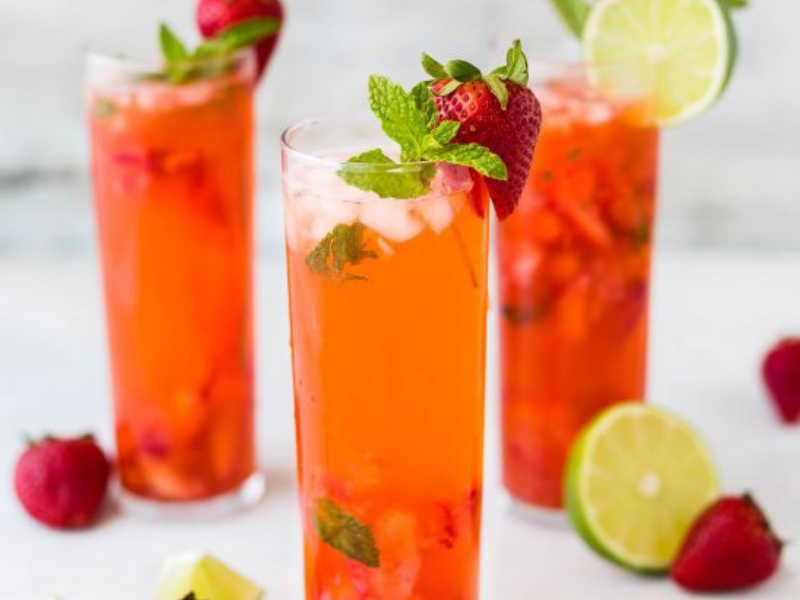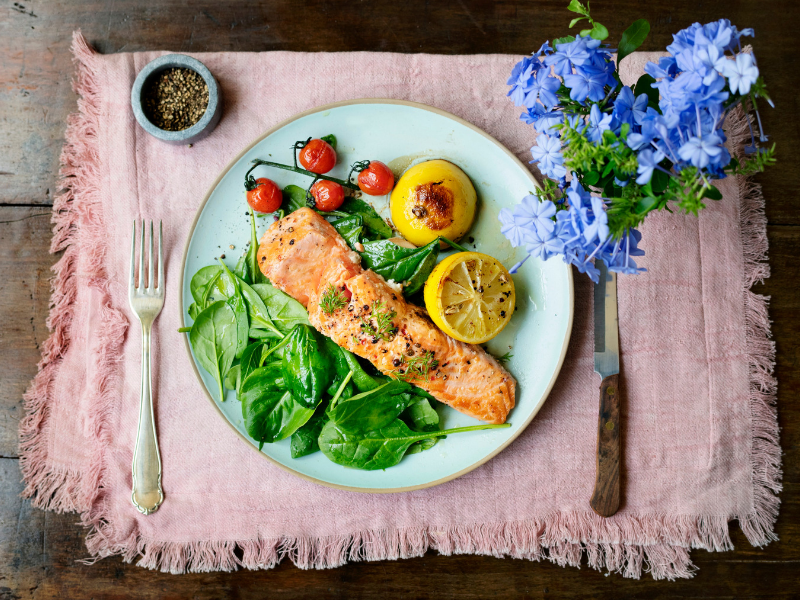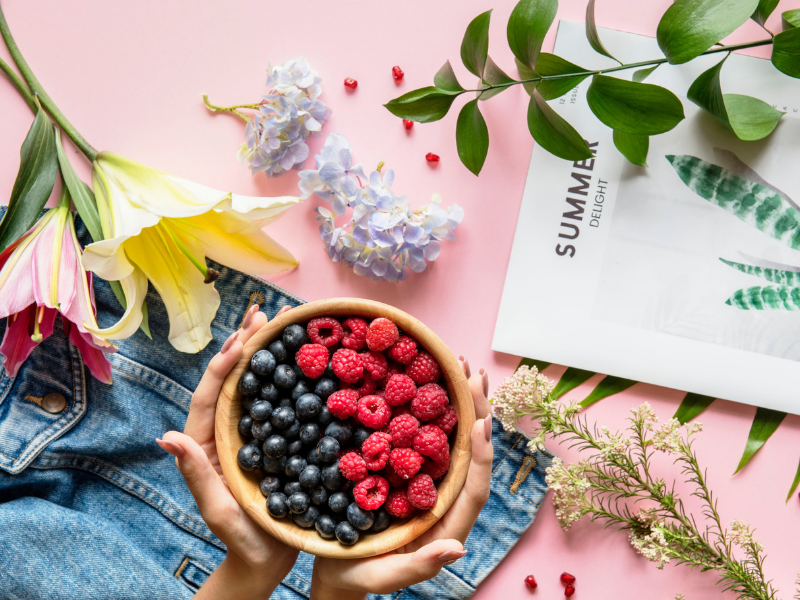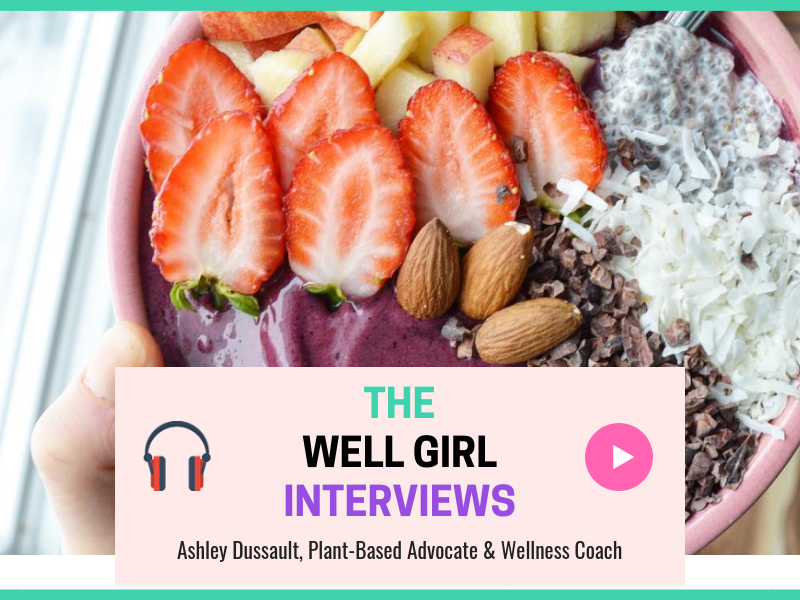Why is healthy gut bacteria important for your body and mind? The gut is composed of a whole lot of microbes that affect your physiology and keep your body and brain functioning properly. Studies show that they affect the way you store fat, how you balance glucose levels, and how you respond to hunger hormones.
When it comes to maintaining healthy gut bacteria, nothing is more important than what you eat and drink.
Read on to learn about 21 amazing foods that promote healthy gut bacteria:
1. Apple Cider Vinegar

Apple cider vinegar is considered a wellness jack-of-all trades, and for good reason. It helps your body create HCL (hydrochloric acid), which is beneficial belly acid that digests fats, carbs, and protein. This aids in weight loss and and it helps to relieve acid reflux because of all the beneficial probiotics and amino acids apple cider vinegar comes with.
2. Kombucha
Kombucha is packed with probiotics, which means it’s good for your gut. This is from the fermentation of sugar in tea by bacteria yeasts. If you’re looking to improve your diet and shed some of those unwanted pounds with kombucha, my advice is to take it slow so you actually keep it off. Not that you can have too much healthy gut bacteria.
3. Dairy-Free or Lactose-Free Yogurt
Many dairy-free yogurts are made from almond, soy, or rice milk, which are much easier for people to digest, and they’re still delicious. So, going dairy-free doesn’t mean you have to go without yogurt ever again. A word of caution though: make sure to read nutrition labels carefully because many brands add obscene amounts of sugar to the yogurt.
Also, many dairy-free yogurts are lower in protein, so go ahead and add some nuts and/or seeds to get that protein boost. You’ll feel fuller and satisfied for a longer period of time.
4. Fermented Coffee

Coffee can sometimes get a bad rap (unless you’re me who wrote an entire article on it’s many benefits. Click here for that), but many nutrition experts recommend it. Unfortunately, for some people, coffee can cause digestive issues. If that’s the case for you, try some fermented coffee. This is a relatively new healthy innovation.
When coffee becomes fermented, the bitter, heartburn-causing notes, are removed thanks to the fermentation process. And here’s the thing: this coffee is the first in a list of soon-to-be fermented foods that will be launching.
Coffee Addict?
Here are 15 proven health reasons why you shouldn’t feel guilty…
5. Sauerkraut
Speaking of fermented foods, Sauerkraut is naturally fermented raw cabbage that has micro-organisms which gang up on bad bacteria in the gut and replace it with healthy gut bacteria. This helps lower irritable bowel syndrome symptoms like gas, bloating, and indigestion. Not a fan of that strong acidic taste of sauerkraut? Well, guess what, that sour taste in fermented foods are organic acids that help probiotics do their stuff.
6. Mangoes
Mangoes are important in keeping that healthy gut bacteria alive. Studies show that incorporating a mango into your diet a day could improve your gut health, while also helping you reduce body fat and control blood sugar. Because the fruit has such a fantastic and diverse nutritional profile that provides various health benefits.
7. Yogurt

I know, I already covered dairy-free and lactose-free yogurt, but regular yogurt is also great for healthy gut bacteria. But, not just any yogurt. Grass-fed, full-fat, and plain (no sugar added) yogurt has a high amount of great probiotics. These probiotics help to remove harmful fungus and bacteria. There’s also beneficial enzymes that improve digestion.
8. Kefir
What is kefir? Kefir is a tart, more liquid yogurt. Popular in Eastern Europe, but is growing in prominence stateside. What makes this so great is that usually contains at least 10 live and active strains of healthy gut bacteria, compared to most other yogurts which only contain three.
Tea addict?
Here are 11 proven healthy reasons why you shouldn’t feel guilty…
9. Sprouted Grains
The process that goes into making sprouted grain bread makes it easier for some people to digest compared to other traditional wheat products. That, in turn, makes it easier for nutrients to be absorbed into the body. It’s also worth noting that many sprouted grains are lower in carbohydrates.
10. Coconut Oil

Coconut oil is a fatty acid that is antiviral, antimicrobial, antibacterial, and antifungal. It has lauric and caprylic acids, which are remarkable at killing off harmful yeast and bacteria while restoring your stomach’s acidity levels. We all know how great coconut oil is for so many things, and this is just another benefit to add to the list.
11. Wild Salmon
If you want to get the most benefits from salmon, you need to make sure it’s wild salmon. That means it’s caught with a fishing pole or net in its natural environment, rather than being farmed. Wild salmon is overflowing with omega-3 fatty acids, which is a powerful anti-inflammatory and critical for healing inflamed gut bacteria.
12. Garlic
Garlic is a terrific prebiotic and even better when you eat it raw. They help to feed and fuel existing healthy gut bacteria. Which means it’s as important to eat foods rich in probiotics (full of healthy gut bacteria) as it is to eat foods rich in prebiotics (help feed the healthy gut bacteria).
13. Miso

Typically high in sodium, so you’ll want to consume miso in moderation. Although, it doesn’t affect our cardiovascular system in the same way a lot of other high-sodium foods do. Other than being an amazing source of protein and fiber, miso is rich in probiotics that can help treat intestinal disorders.
14. Chocolate
Yes! finally, something that we can all agree is the most delicious snack, and now I’m telling you that it’s good for you too! Chocolate is a great way to get your prebiotic and probiotic fix. There’s a growing number of brands that now make raw and certified organic, prebiotic and probiotic-enhanced chocolate bars. Strengthening healthy gut bacteria has never been tastier.
15. Collagen
Collagen is one of the largest proteins in the body. It’s actually what holds our bodies together. Getting collagen on a daily basis is essential for not only healing inflamed bacteria, but it also slows the aging process in and out of our body. And, it’s so easy to incorporate into your diet. Simply add some collagen protein into your morning coffee, soups, smoothies, etc.
16. Bone Broth

Bone broth is stock made from the bones and marrow of a cow or chicken that’s slow cooked for 24-72 hours. All the minerals and amino acids from the bones populate the broth, which makes it one of the most nutrient-rich foods on the planet. These nutrients, like L-glutamine, help heal and seal the gut lining of the small and large intestine. Bone broth is responsible for healing irritable bowel syndrome.
17. Onions
Onions, as well as Jerusalem artichokes and chicory, are high in prebiotics, which promote the growth of healthy gut bacteria. To make the most of these nutrients you’ll want to avoid as many refined foods (white flour and white sugar), which feed the bad bacteria in our guts.
18. Kvass
Kvass is a fermented foods beverage that is commonly made from rye bread, which means it’s filled with digestive health benefits. The probiotics in kvass help to protect us from infection especially when bad bacteria rears its ugly head. Kvass gives you a boost of good bacteria to help resist infection all year round.
19. Kimchi

Kimchi is one of the fermented foods that is rich in probiotics, and is an amazing candidate for healthy gut bacteria promotion. It’s is great for keeping things moving in your digestive tract. It is especially beneficial for people suffering from stomach and bowel pain, inflammation, leaky gut syndrome, or other bowel-related diseases.
20. High-Fiber Foods
Foods that are high in fiber, such as artichokes, green peas, lentils, black and lima beans, almonds, and apples are amazing additions to your diet. These foods are high in dietary fiber, which helps move food efficiently through the body. They also help prevent constipation, hemorrhoids, and digestive diseases.
21. Pickled Cucumber
Pickled cucumbers are a great source of those healthy probiotic bacteria, which can improve digestive health. They’re low in calories and are a great source of vitamin K, which is an essential nutrient for preventing blood clotting. Just keep in mind that pickles are usually high in sodium.










